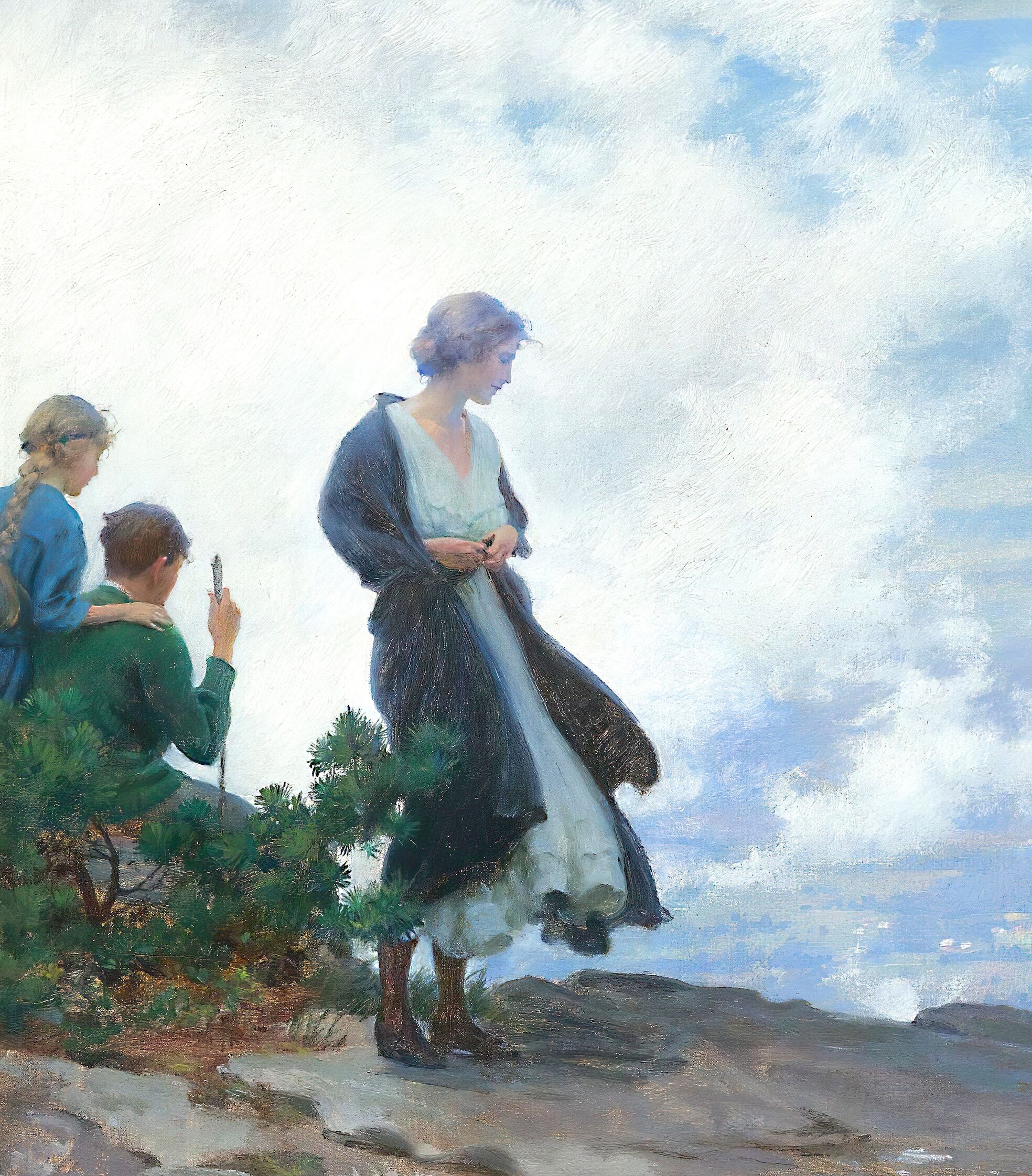
Parenting for Civics
Every year around Memorial Day, a video clip flashes up on my social media “memories” feed, which inevitably inspires a pang. Two small boys are sitting on the back steps of a white stucco house, clad in camo shorts and flag-festooned t-shirts. In the background, a man asks whether everyone is ready and from behind the camera, my own voice mingles with the boys’ as we count down from ten and yell “BLAST OFF!” Pandemonium ensues in the form of colorful explosions, smoke, noise, screaming, cheers, and peals of laughter.
There is so much joy in those fifteen seconds. The nostalgia is almost unbearable. I watch that Memorial Day festivity and think, “Men died for this. At Normandy and Iwo Jima, in the camps at Valley Forge, they died so there could be days like this.” That’s maudlin perhaps, or cliché, but isn’t it true? Reflecting on all this, my mind is usually drawn into further reflections on patriotism, piety, and parenthood. Young parents make so many blunders, but that day I did it right. I brought my family together in happy celebration of something important.
Time passes. Those boys (my eldest two sons) are now teenagers, less easily thrilled. Just in general, we don’t get to spend our lives resting in the simplicity of those effervescent moments. Some wars are morally murkier than World War II. Some firework shows get spoiled by rain. As kids get older, a new set of concerns come into view: could they be those men at Normandy, if circumstances required it? How many young people have that kind of mettle today?

Patriotism isn’t always as simple as lighting a firecracker. How do we teach our kids to love America when we ourselves often have profoundly mixed feelings about it?
It has always been obvious to me that parents have an indispensable role to play in forming conscientious citizens, and since patriotism among young Americans has apparently reached historic lows, it would seem their parents are shirking a bit. That’s distressing, and yet I understand it. Patriotism isn’t always as simple as lighting a firecracker. How do we teach our kids to love America when we ourselves often have profoundly mixed feelings about it?
Far more often than I’d like, I find myself talking to my kids about the importance of standing outside the mainstream culture, rejecting things other Americans consider normal, maintaining beliefs and traditions in a society that is sometimes hostile to them. It takes work to harmonize that lesson with a real love of country. I have little doubt that other parents struggle in similar ways (even if their concerns are a bit different) and this surely impacts the younger generation’s feelings about America. Thus, civic education tends to begin in the mirror. Before we can instill civic pride in our kids, we have to ask ourselves: Why do I love America? Which pieces of her history and culture do I want my kids to embrace?
There is no real script here, but I have a few suggestions. First, engage in some shameless cherry-picking. What are your favorite American novels, films, songs, sports, historical figures, or pastimes? Share them with your kids. It works well because you can endorse your favorite things with full-throated, unfeigned enthusiasm. Must every civics lesson take the form of a Hard Conversation? Even with older kids, it’s healthy sometimes to catch the sunshine.

The only way to improve a flawed thing is to love it, to desire its real good and try to help realize that.
When hard conversations do happen, try to keep perspective. No human society is perfect. But even through the darkest chapters of a nation’s history, we can always recall G.K. Chesterton’s “Pimlico Principle”: the only way to improve a flawed thing is to love it, to desire its real good and try to help realize that. One of the best ways of doing that, in my experience, is by weaving America’s story together with the story of your own family history. It’s okay if that history has some dark chapters of its own. The point is that we all want the best for our family, regardless of their imperfections, and we should want that for our country too. If parents don’t teach that lesson, it’s unlikely anyone will. It’s hard to replace a parent’s role in bridging the gap between family and nation.
Teaching civics to our kids can be complicated, but it can also be wonderful, and there’s a final point worth considering. It’s worth taking a little trouble to raise children who know how to honor things bigger than themselves. As we struggle to hold onto the ties that bind, civic virtue may prove a necessary support to all the others. My boys are no longer tiny, but someday I would like to relive that Memorial Day scene, perhaps as a grandparent or great-grandparent. We live and die to make those moments possible. God bless America.

About the Author
Rachel Lu is an associate editor at Law & Liberty, and a contributor at America magazine and National Review.
